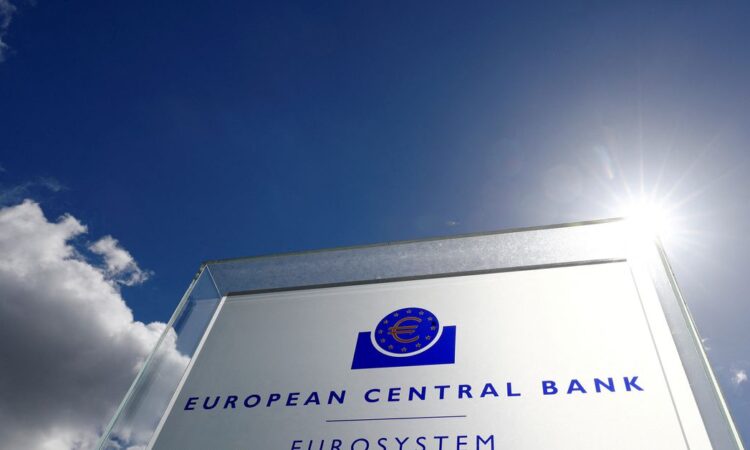
FRANKFURT, June 19 (Reuters) – Euro zone inflation could overshoot even the recently raised forecasts so the European Central Bank should err on the side of raising rates too much to combat price growth rather than stopping hikes too soon, ECB policymakers said on Monday.
The ECB have raised rates by a combined four percentage points over the past year to stem a historic surge in inflation but said it would likely hike again in July after its new forecasts put price growth above its 2% target through 2025.
“We need to remain highly data-dependent and err on the side of doing too much rather than too little,” ECB board member Isabel Schnabel, an outspoken conservative or ‘hawk’, said in a speech.
“Risks of both a de-anchoring of inflation expectations and weaker monetary policy transmission suggest that there is a limit to how long inflation can stay above our 2% target,” she added.
The fear is that if the ECB fails to root out inflation now, it could get entrenched in the economy, forcing policy to remain tight for even longer, causing hardship for euro zone consumers beyond what would be necessary.
Slovak central bank chief Peter Kazimir, another conservative who often sides with Schnabel, made similar points on Monday.
“A continuation of monetary policy tightening is the only reasonable way ahead,” Kazimir said in a blog post. “Failing to do what’s necessary represents a much more significant risk than the risk of over-tightening.”
The comments set up the debate over policy at a time when inflation is falling quickly but rapid nominal wage growth and robust demand for services risk slowing or even reversing disinflation.
Policy ‘doves’ argue that rapid rate hikes have yet to work their way through the economy and the higher funding costs, combined with anaemic growth, will naturally cool price growth.
But Schnabel said excessive rate hikes can be reversed quickly, so the risk was “comparatively small” since entrenched inflation would mean protracted economic pain.
“It is very costly to react only after upside risks to inflation have materialised, as this could destabilise inflation expectations and thus require a sharper contraction in output to restore price stability,” she said.
Reporting by Balazs Koranyi; Editing by Jon Boyle and Gareth Jones
Our Standards: The Thomson Reuters Trust Principles.





